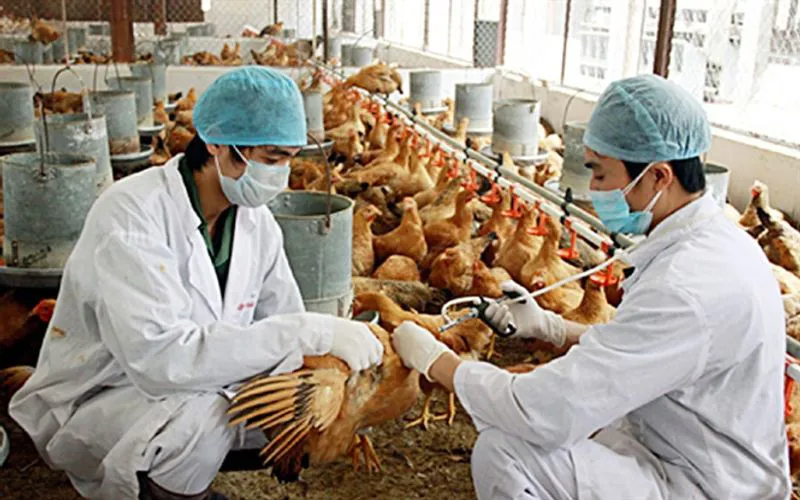Vietnam warned to be on high alert of H5N8 avian flu strain
The strain is a subtype of the influenza A virus that causes flu-like symptoms in wild birds and poultry.
The United Nations Food and Agriculture Organization (FAO) and the World Health Organization (WHO) have warned Vietnam to keep vigilant after confirmation of seven farm workers infected with the influenza A (H5N8), the Ministry of Health said on March 3.
Russian authorities have reported seven farm workers in a chicken farm in the country, aged 29 to 60 years, infected with the H5N8 strain of avian flu, WHO stated.
This is the first report of H5N8 poultry-to-human infection even though the virus has been circulating in poultry and wild birds since 2016, WHO said, adding that all the seven human cases were asymptomatic.
Thus, there was no evidence of human-to-human transmission of avian influenza H5N8, and the risk of an outbreak among humans remains very low, WHO concluded.
WHO warns Vietnam to stay vigilant on H5N8 bird flu strain. Photo: Lam Nguyen |
The strain is a subtype of the influenza A virus that causes flu-like symptoms in wild birds and poultry. Outbreaks of the H5N8 strain have been reported in Russia, Europe, China, the Middle East, and North Africa in recent months.
In Vietnam, the Department of Animal Health (DAH) under the Ministry of Agriculture and Rural Development (MARD) has never detected H5N8 virus in their surveillance systems. The DAH will increase testing for H5N8 virus in the national avian influenza surveillance program starting from 2021.
Dr. Pawin Padungtod, senior technical coordinator of the FAO in Vietnam, said that technically, the H5N8 virus strain shares antigenic characteristics with the H5N6 strain circulating in Vietnam.
The current avian influenza vaccine used in Vietnam would remain effective to prevent the disease in poultry. Therefore, the current avian flu vaccine used in Vietnam still works against the H5N8 strain, he added.
To prevent H5N8 influenza infection, FAO and WHO recommended breeders strengthen biosecurity measures in the breeding area, comply with poultry vaccination schedules, report unusual cases of poultry deaths and not allow visitors to enter farms.
The bird flu infections in humans have been associated with direct contact with infected live or dead poultry.
Dr. Satoko Otsu, a team leader of WHO Health Emergency Program in Vietnam stressed that although the risk of human infection of this specific strain of avian influenza A(H5N8) in Vietnam is very low, local residents should remain vigilant and continue to practice personal protective measures against avian flu.











